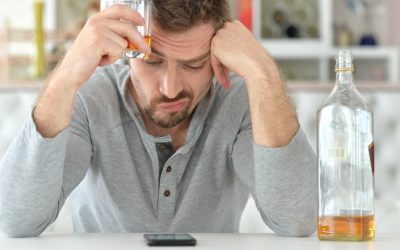Unlike sleeping pills, CBTi helps you overcome the underlying causes of your sleep problems rather than just alleviating the symptoms. Parasomnias Alcohol increases the amount of SWS in the first third of the night. As a result it may precipitate — or increase the frequency of — parasomnias which occur during this stage of sleep. That said, if you’re drinking half a bottle of Scotch before bed then it will, of course, disturb your sleep. Drinking to fall asleep regularly can build up a tolerance to alcohol, gradually lessening booze’s ability to help you drift off, according to the National Sleep Foundation. Scientifically formulated with pro & prebiotics, L-Cysteine & B12 to help you feel your best the morning after celebrating.
Suppressing REM sleep can have detrimental consequences for memory consolidation and other cognitive processes. This suggests not only that CBTi is effective in reducing insomnia symptoms but that improvements in insomnia may also result in fewer alcohol-related problems. Using alcohol to help you relax and sleep may actually be masking a sleep disorder that needs treatment.
When should I stop drinking before bed?
Although there’s no evidence that alcohol can cause narcolepsy (sleepwalking), it does disrupt REM sleep, which may make the onset of sleepwalking more likely. Based on your answers, we will calculate your free
Sleep Foundation Score
™
and create a personalized sleep profile that includes sleep-improving products and education curated just
for you. The Sleep Foundation editorial team is dedicated to providing content that meets the highest standards for accuracy and objectivity. Our editors and medical experts rigorously evaluate every article and guide to ensure the information is factual, up-to-date, and free of bias.

Research also indicates that drinking alcohol makes a person more likely to experience a sleep-related eating disorder. The primary characteristic of these disorders is episodes of binge eating during the night. During these episodes, people tend to choose high-carb foods and foods that aren’t safe for human consumption, including raw meat. Alcohol consumption does liquor help you sleep could disrupt your circadian rhythm in other ways, too. For instance, a late night of drinking followed by sleeping in the next morning will interfere with the consistent sleep schedule needed for quality rest. Research also suggests alcohol impairs a person’s response to light cues, which is a crucial part of regulating your internal clock.
I Tried the Sleepy Girl Mocktail Recipe—and It Had a Surprising Effect on My Sleep
CBTi, as offered by Sleepstation, could help if you’re experiencing alcohol-induced insomnia. These impairments could mean the danger signs related to substance use — and excess alcohol consumption — are missed. We all know someone who feels merry following their first drink and we know others who appear unfazed by pint after pint.
- People with insomnia often wake up tired and struggle with poor memory or concentration.
- If you do not have an alcohol use disorder (AUD), here are some steps you should take.
- Alcohol is known to exacerbate various sleep problems over time, including sleep apnea and insomnia.
- “As the levels decline, you’re going to get more issues with the fragmentation,” said Dr. R. Nisha Aurora, a member of the board of directors of the American Academy of Sleep Medicine.
A healthcare provider can recommend the best treatment options for you. We’ve covered more on how long before bed you should stop drinking alcohol here. The best way to ensure alcohol doesn’t mess with your sleep is to avoid it altogether. Secondly, alcohol wakes you up in the night, making it harder to get enough sleep. When you don’t get enough sleep, you build up sleep debt and this can tank your energy levels. Some research shows alcohol can make you feel sleepy soon after consumption and this may be due to eating a meal at the same time.
Less REM sleep
Research shows drinking one non-alcoholic beer with dinner can improve subjective sleep quality and decrease how long it takes to fall asleep. As a general rule, Meadows said, people should aim to leave at least three to four hours between drinking and sleeping to avoid sleep disruption. “For the best sleep, try to have at least four alcohol-free nights every week,” Meadows said. A good, soothing beverage to drink before bedtime would be warm milk (your mother was right) or herbal tea such as chamomile or peppermint. As for caffeinated drinks, Kirkpatrick recommends that if you have difficulty sleeping, try consuming your last cup by 2 p.m.
- The rebound effect may include more time in REM—a lighter sleep stage from which it is easy to be awakened.
- As alcohol increases GABA activity in the brain, you may start to feel sleepy.
- Another important part of a nighttime routine is maintaining a consistent sleep schedule.
They’re not only known for making a great pie filling but also a number of health benefits, including improved sleep quality (3, 4). In two separate studies, up to 28% of people said they use alcohol to help them fall asleep. This phenomenon comes as your body finishes metabolizing the alcohol you consumed. The point at which that happens depends on how much you drank before bed. If you go to bed with a breath-alcohol concentration in the range of 0.06% to 0.08%, for instance, your body will metabolize the alcohol after four to five hours of sleep.
Ways Alcohol Disrupts Your Night
But studies have shown that alcohol actually disturbs your sleep. Rapid-eye movement (REM) sleep usually happens about 90 minutes after you fall asleep. This is the dream phase, when your eyes shift rapidly from side to side as you snooze. During REM, your breathing, heart rate, and blood pressure almost look the same as when you’re awake.
Leave a Reply